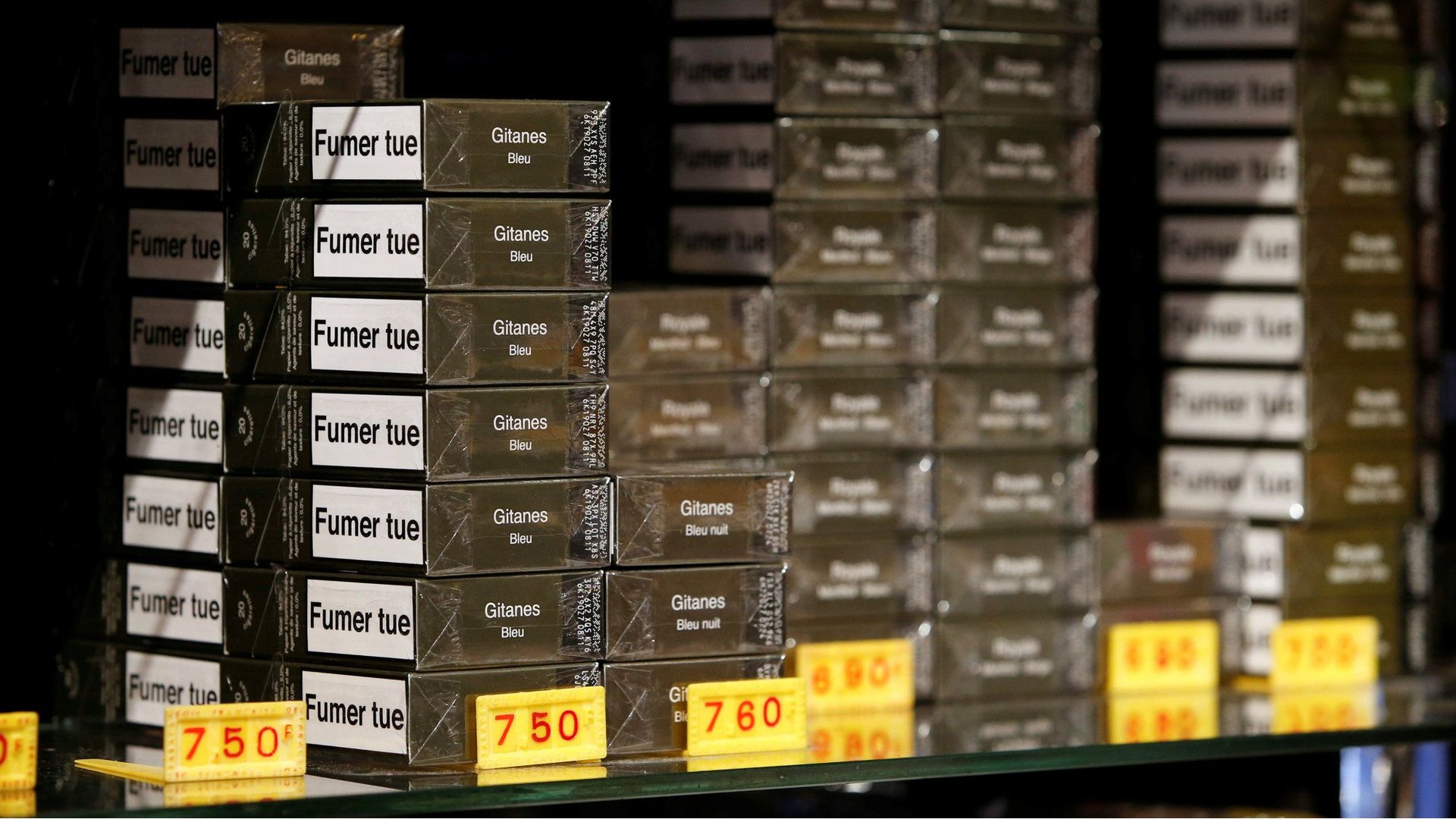Cigarettes in the UK are about to look a lot less appealing
Starting this weekend, all cigarettes sold in the UK will be forced to bear the same drab, uninviting packaging and graphic warnings of the adverse health effects of smoking. Regulators hope the strict new rules will prevent more young people from picking up the habit, which is already on the decline in the country.


Starting this weekend, all cigarettes sold in the UK will be forced to bear the same drab, uninviting packaging and graphic warnings of the adverse health effects of smoking. Regulators hope the strict new rules will prevent more young people from picking up the habit, which is already on the decline in the country.
The UK government clamped down on tobacco manufacturers last year by passing standardized-packaging legislation that would eliminate nearly all semblance of the branding cigarette-makers use to differentiate their products.
Under the new UK rules, all tobacco packaging must be olive green, instead of the grays, blue, reds, and golds used by popular brands like Sterling, Mayfair, and Winston in the UK. And the brand names must be displayed in a uniform, sans-serif font—in the same size and color.
The plain packages began rolling out last year in the UK. And they’ll be the new normal as of Sunday, when the laws go into effect.
Scientists estimate the new packaging could result in 300,000 fewer smokers per year in the UK, where smoking among adults recently hit a new low. It’s already proven effective in speeding up the decline in smoking in other developed countries, like Australia, which introduced plain-packaging laws in 2012, Quartz’s Akshat Rathi previously reported.
The new UK regulations piggyback on an EU directive on tobacco products that kicks in today, as well.
It requires tobacco manufacturers to plaster health warnings over 65% of the front and back packaging of cigarette and roll-your-own tobacco packs. The cigarette packs must also be in the shape of a box, so that the warnings are clearly visible. And they must contain at least 20 cigarettes. Smaller packs, the directive states, are more appealing to young people who don’t have as much money at their disposal.
The directive restricts the size and nicotine strengths of e-cigarette tanks, too. And mandates that health warnings cover 30% of the front and back reading.
Manufacturers like Imperial Tobacco and Japan Tobacco—maker of Winston and Camel—are likely to be the most effected by the new EU and UK regulations, the Telegraph reported. They reportedly make about 15% of their overall earnings in the UK. Those companies also control about 80% of the UK’s tobacco market, which was worth more than £14.3 billion ($18.6 billion) in 2016, according to the UK public-health campaign Action on Smoking and Health.
The charity says UK cigarette sales peaked in 1974 and have been declining ever since. The Tobacco Manufacturers’ Association’s consumption data also shows a steep decline.